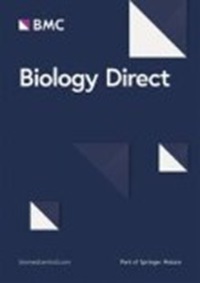PHF5A promotes esophageal squamous cell carcinoma progression via stabilizing VEGFA
IF 5.7
2区 生物学
Q1 BIOLOGY
引用次数: 0
Abstract
Esophageal squamous cell carcinoma (ESCC) is the main subtype of esophageal cancer. Current therapeutic effect is far from satisfaction. Hence, identifying susceptible genes and potential targets is necessary for therapy of ESCC patients. Plant homeodomain (PHD)-finger domain protein 5 A (PHF5A) expression in ESCC tissues was examined by immunohistochemistry. RNA interference was used for in vitro loss-of-function experiments. In vivo assay was performed using xenograft mice model by subcutaneous injection. Besides, microarray assay and co-immunoprecipitation experiments were used to study the potential downstream molecules of PHF5A in ESCC. The molecular mechanism between PHF5A and vascular endothelial growth factor A (VEGFA) was explored by a series of ubiquitination related assays. We found that PHF5A was highly expressed in ESCC tissues compared to normal tissues and that was correlated with poor prognosis of ESCC. Loss-of-function experiments revealed that PHF5A silence remarkably inhibited cell proliferation, migration, and induced apoptosis as well as cell cycle arrest. Consistently, in vivo assay demonstrated that PHF5A deficiency was able to attenuate tumor growth. Furthermore, molecular studies showed that PHF5A silencing promoted VEGFA ubiquitination by interacting with MDM2, thereby regulating VEGFA protein expression. Subsequently, in rescue experiments, our data suggested that ESCC cell viability and migration promoted by PHF5A were dependent on intact VEGFA. Finally, PI3K/AKT signaling rescue was able to alleviate shPHF5A-mediated cell apoptosis and cell cycle arrest. PHF5A is a tumor promoter in ESCC, which is dependent on VEGFA and PI3K/AKT signaling. PHF5A might serve as a potential therapeutic target for ESCC treatment.PHF5A 通过稳定 VEGFA 促进食管鳞状细胞癌的进展
食管鳞状细胞癌(ESCC)是食管癌的主要亚型。目前的治疗效果远不能令人满意。因此,确定易感基因和潜在靶点对治疗 ESCC 患者十分必要。免疫组化法检测了ESCC组织中植物同源异构体(PHD)-手指结构域蛋白5 A(PHF5A)的表达。体外功能缺失实验采用了 RNA 干扰。体内实验采用皮下注射异种移植小鼠模型。此外,还利用芯片分析和共免疫沉淀实验研究了PHF5A在ESCC中的潜在下游分子。通过一系列泛素化相关实验探讨了PHF5A与血管内皮生长因子A(VEGFA)之间的分子机制。我们发现,与正常组织相比,PHF5A在ESCC组织中高表达,并且与ESCC的不良预后相关。功能缺失实验显示,PHF5A沉默能显著抑制细胞增殖、迁移、诱导细胞凋亡和细胞周期停滞。体内试验也证明,PHF5A 的缺失能够抑制肿瘤的生长。此外,分子研究表明,PHF5A沉默可通过与MDM2相互作用促进VEGFA泛素化,从而调节VEGFA蛋白的表达。随后,在挽救实验中,我们的数据表明 PHF5A 促进的 ESCC 细胞活力和迁移依赖于完整的 VEGFA。最后,PI3K/AKT 信号救援能够缓解 shPHF5A 介导的细胞凋亡和细胞周期停滞。PHF5A 是 ESCC 中的肿瘤促进因子,它依赖于 VEGFA 和 PI3K/AKT 信号。PHF5A可能是治疗ESCC的潜在靶点。
本文章由计算机程序翻译,如有差异,请以英文原文为准。
求助全文
约1分钟内获得全文
求助全文
来源期刊

Biology Direct
生物-生物学
CiteScore
6.40
自引率
10.90%
发文量
32
审稿时长
7 months
期刊介绍:
Biology Direct serves the life science research community as an open access, peer-reviewed online journal, providing authors and readers with an alternative to the traditional model of peer review. Biology Direct considers original research articles, hypotheses, comments, discovery notes and reviews in subject areas currently identified as those most conducive to the open review approach, primarily those with a significant non-experimental component.
 求助内容:
求助内容: 应助结果提醒方式:
应助结果提醒方式:


